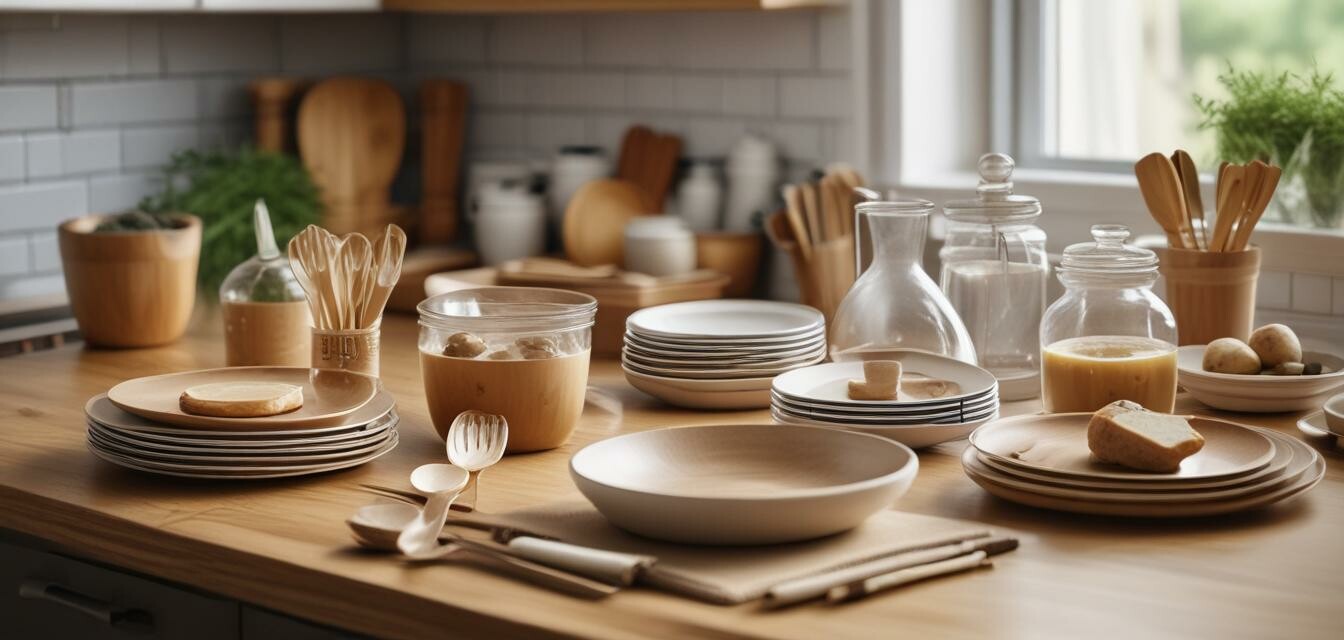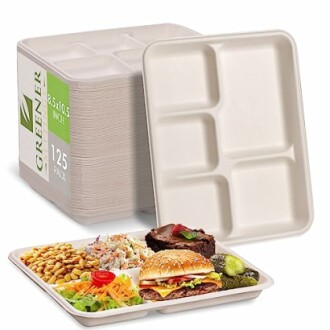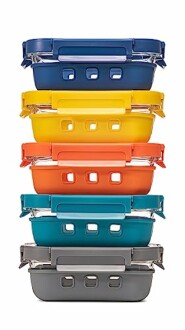
Eco-Friendly Alternatives to Single-Use Products
- Explore sustainable options to replace single-use kitchen items, such as plates and containers.
- Transitioning to eco-friendly alternatives can reduce waste significantly.
- Choosing the right materials is essential for sustainability.
In our ever-evolving world, the call for sustainability is becoming louder. The typical kitchen is filled with numerous single-use products that contribute massively to environmental degradation. It's time to discover effective eco-friendly alternatives that not only reduce waste but also promote a sustainable lifestyle. Join us as we explore smarter choices for your kitchen!
Why Choose Eco-Friendly Products?
Eco-friendly products are designed to minimize their impact on the environment. By switching to renewable, biodegradable, or recyclable options, you contribute to reducing pollution, conserving resources, and supporting a circular economy.
Essential Eco-Friendly Alternatives
| Single-Use Product | Eco-Friendly Alternative | Benefits |
|---|---|---|
| Plastic Plates | Compostable Plates | Biodegradable, made from sugarcane, no harmful coatings. |
| Plastic Bags | Reusable Produce Bags | Durable, help reduce plastic waste, washable. |
| Plastic Storage Containers | Glass Storage Containers | Reusable, BPA-free, microwave-safe, no harmful chemicals. |
Top Eco-Friendly Products to Consider
100% Compostable 5 Compartment Plates
Made from sugarcane by-product, these plates are not only eco-friendly but also provide convenience with separate compartments for food.
Learn MoreConsiderations When Choosing Eco-Friendly Products
- Material: Look for products made from sustainable materials like bamboo, glass, or compostable resources.
- Durability: Ensure that the products are reusable and durable to reduce the need for replacements.
- Certifications: Check for certifications like compostable or fair trade to ensure genuine eco-friendliness.
Adopting Sustainable Habits
Transitioning to an eco-friendly kitchen isn't just about replacing products. It's about changing our mindset. Here are a few simple practices to integrate sustainable habits into your daily routine:
- Carry reusable bags while shopping.
- Utilize glass containers for food storage.
- Opt for compostable plates for parties or picnics.
Long-Term Benefits of Eco-Friendly Kitchenware
Investing in eco-friendly kitchenware leads not only to environmental advantages but also personal benefits:
- Healthier meals with chemical-free materials.
- Save money in the long run with durable products.
- Inspire others by leading a sustainable lifestyle.
Pros
- Minimizes environmental impact.
- Promotes healthier eating.
- Reduces long-term costs with reusable options.
Cons
- Initial costs may be higher.
- Requires a change in mindset and habits.
Conclusion
Transitioning from single-use products to sustainable alternatives may seem daunting, but the small changes you make today can lead to a healthier planet tomorrow. By embracing eco-friendly options, you are making a straightforward yet impactful difference. Remember, every little action counts!
Glass Food Storage Container Set
These glass meal prep containers are perfect for eco-conscious meal planning, featuring airtight lids without plastics.
Learn More



